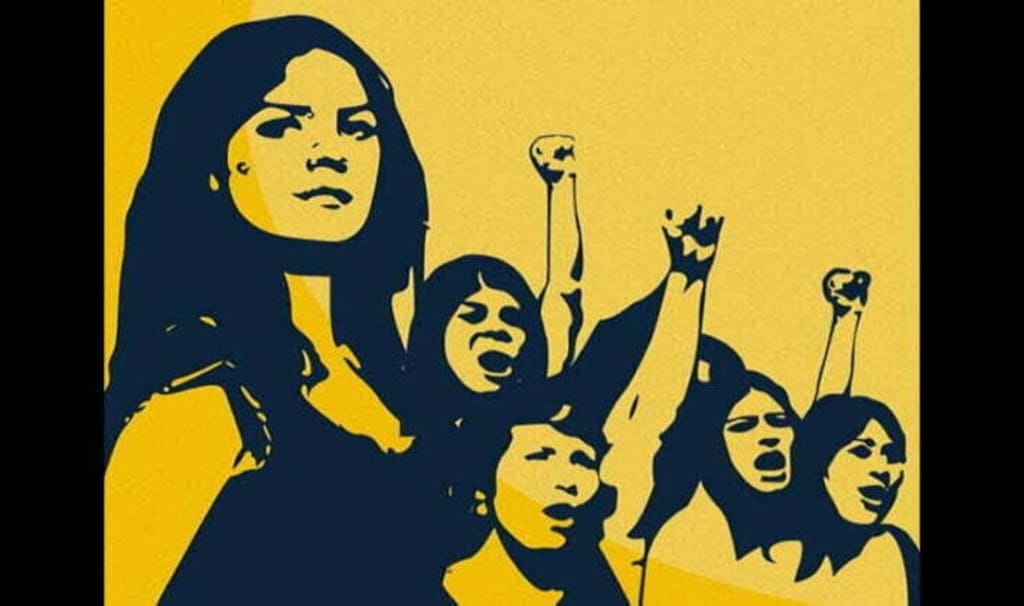Women's Rights Around the World
Progress and Challenges

The issue of women's rights encompasses the pursuit of social, political, and economic equality for women, constituting a fundamental aspect of human rights. While significant progress has been made in various regions, numerous challenges persist, hindering the complete realization of women's rights. This blog post explores the advancements made, the persistent obstacles, and the crucial need for an inclusive and intersectional approach to promoting women's rights.
Historical Context
Throughout history, women have been at the forefront of advocating for their rights, spanning continents and centuries. From the suffragette movements of the late 19th and early 20th centuries to the feminist waves, women's relentless activism has achieved notable milestones. These victories include securing the right to vote, gaining access to education and employment opportunities, and implementing legal reforms to protect women's rights.
Progress in Women's Rights
Global advancements in women's rights have been noteworthy. Iceland, for instance, consistently ranks highest in the Global Gender Gap Index, indicating its commitment to gender equality. Icelandic women hold prominent positions in political leadership, corporate boards, and public service. The government's implementation of policies such as equal pay laws, parental leave, and affordable childcare has contributed to narrowing the gender gap.
Similarly, Rwanda, recovering from a devastating genocide, has made significant strides in women's political representation. Through the implementation of a quota system, women now occupy over 60% of parliamentary seats, resulting in legislation and policies that promote gender equality and women's empowerment.
Challenges and Persistent Issues
Despite progress, substantial challenges continue to impede the advancement of women's rights. Gender-based discrimination and inequality remain prevalent, hindering women's access to equal opportunities and resources. In some countries, women face legal barriers regarding land ownership and inheritance rights, limiting their economic independence and perpetuating gender disparities.
Cultural and societal barriers often confine women to predefined roles, curbing their autonomy and choices. Deeply ingrained gender norms and stereotypes restrict women's freedom to pursue diverse paths and contribute fully to society. Overcoming these barriers necessitates challenging and transforming prevailing attitudes and beliefs.
Economic disparities and poverty disproportionately affect women, exacerbating gender inequality. Globally, women earn an average of 20% less than men, while limited access to finance and resources hinders women's economic empowerment. Entrepreneurship and employment opportunities are often restricted for women, particularly those from marginalized communities.
Violence against women remains a pervasive issue worldwide, encompassing domestic violence, sexual assault, and human trafficking. These forms of violence violate women's rights, impede their participation in society, and hinder progress towards gender equality. Addressing this complex problem requires comprehensive legal frameworks, robust support systems for survivors, and transformative cultural shifts.
Limited access to education and healthcare further perpetuates gender disparities, particularly in marginalized communities. Girls in many parts of the world face barriers such as early marriage, societal expectations, and financial constraints, limiting their educational opportunities. Additionally, inadequate access to healthcare, including reproductive health services and maternal care, undermines women's well-being and hampers progress towards gender equality.
Prominent Movements and Activists
Women's rights movements have flourished globally, uniting individuals in the pursuit of gender equality. The #MeToo movement, originating in the United States, sparked a global conversation on sexual harassment and assault, empowering survivors to share their experiences and demand change. The movement's impact has resulted in policy reforms and cultural shifts in many countries.
Malala Yousafzai, the youngest Nobel Prize laureate, has become an influential advocate for girls' education. Growing up in Pakistan, she defied the Taliban's ban on education for girls, championing her right to learn. Malala's activism has shed light on the challenges faced by young women worldwide in their pursuit of education, inspiring countless individuals to take action.
Intersectionality and Women's Rights
Recognizing the intersectionality of women's experiences is crucial for addressing the complexity of gender inequality. Factors such as race, class, and sexual orientation significantly influence women's lives and shape their encounters with discrimination. An inclusive and intersectional approach to women's rights acknowledges and addresses the unique challenges faced by marginalized women, ensuring that no one is left behind in the pursuit of gender equality.
Current Initiatives and Future Outlook
Numerous initiatives and campaigns actively work towards advancing women's rights worldwide. The HeForShe campaign, initiated by UN Women, encourages men and boys to become allies in the fight for gender equality, emphasizing that achieving gender equality is a shared societal responsibility.
Non-governmental organizations (NGOs) like Equality Now and Plan International advocate for policy changes and empower women at the grassroots level. Equality Now focuses on combating gender-based violence, advocating for legal reforms, and supporting survivors. Plan International works to promote girls' rights and gender equality through education, healthcare, and community development programs.
Social media platforms have become powerful tools for amplifying women's voices and raising awareness about women's rights issues. Hashtags like #TimesUp, #EverydaySexism, and #BalanceTonPorc have facilitated global conversations, mobilized movements, and encouraged individuals to share their experiences. Online activism has contributed to shifting cultural norms, challenging gender stereotypes, and fostering accountability.
While considerable progress has been made, challenges persist on the path to gender equality. Achieving true empowerment requires recognizing the interconnectedness of women's rights with other social justice movements and adopting an inclusive and intersectional approach. Overcoming barriers, transforming norms, and ensuring equal access to opportunities and rights demand collective effort. Let us continue to support women's rights movements, educate ourselves and others, and take action within our spheres of influence. Together, we can create a world where every woman is genuinely empowered to thrive.





Comments
There are no comments for this story
Be the first to respond and start the conversation.